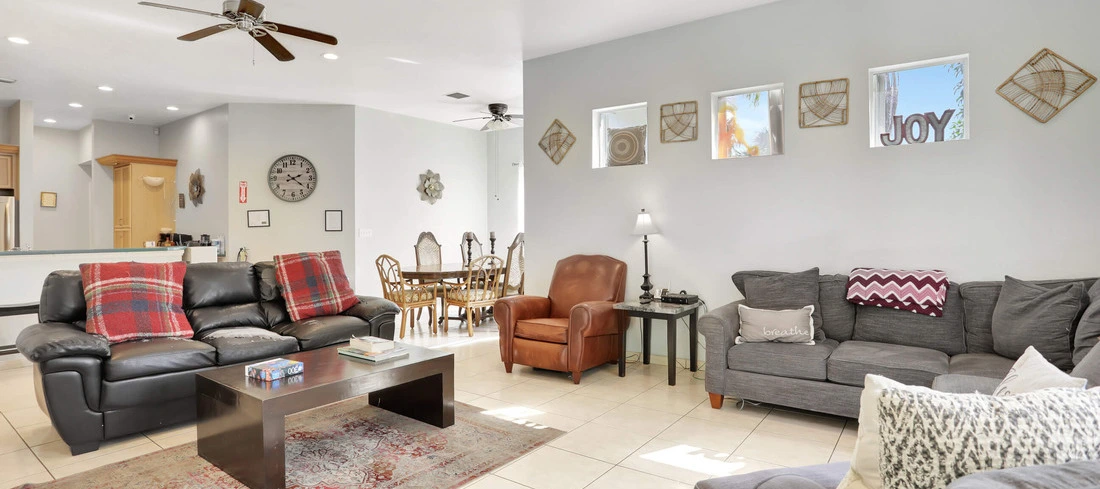The Sylvia Brafman Mental Health Center offers specialized family counseling services and therapy programs, and we accept insurance from many providers, making our services more accessible. Call 877-958-9212 or complete our online form to determine your coverage details. Keep reading to learn how to access valuable counseling for families in Miami, Orlando, Tampa, Jacksonville, and across the Sunshine State.

Family Counseling and Therapy Programs in Fort Lauderdale, South Florida
What is a Family Counseling Program?
A family counseling program is a therapeutic intervention designed to address family dynamics and challenges. These programs typically involve licensed therapists or counselors who work to identify and address issues such as communication skills, conflict resolution, substance abuse, mental health concerns, and more, in addition to providing parenting support.
Through individual and group sessions, counseling for families aims to improve interpersonal relationships, enhance communication skills, and foster understanding among family members. Therapists employ various evidence-based techniques and interventions tailored to the specific needs of each family, which may include promoting healthy boundaries, facilitating problem-solving skills, and providing emotional support and guidance as families navigate difficult circumstances. Family counseling services create a safe environment for open dialogue, empowering families to overcome challenges, strengthen connections, and thrive together.

Does Insurance Cover Family Counseling?
It usually requires a determination of medical necessity for insurance to cover family counseling. Confirming coverage with your provider and understanding any prerequisites, such as referrals or pre-authorizations, is essential. Coverage details vary from plan to plan, so call 877-958-9212 to speak with one of our knowledgeable patient advocates about your insurance plan’s specifics related to family counseling.
Does Insurance Cover Marriage Therapy?
Under the Affordable Care Act and the Mental Health Parity and Addiction Equity Act, insurers are required to provide equitable coverage for mental health conditions, treating them on par with physical health issues without discrimination or higher copayments. However, while these laws mandate fair treatment for psychological disorders, they typically don’t extend to marriage therapy.
This is because mental health parity laws primarily address medical diagnoses, whereas marriage therapy, focused on relationship and family dynamics, falls outside this framework. Exceptions may apply, such as in the case of a mental health diagnosis or medical necessity within the partnership. Contact us for details and to schedule your free assessment today.
At The Sylvia Brafman Mental Health Treatment Center in Fort Lauderdale, Florida, our team of dedicated professionals is ready to guide you. We offer IOP and a variety of treatment programs, each uniquely designed to meet your needs. We’re also able to offer accommodation at affordable rates if you’re travelling in from out of State. So don’t wait, reach out to us today! Either give us a call or fill up the form below to request a callback.
"*" indicates required fields

Insurance Providers That Cover Family Counseling Near Me
If you’re seeking insurance providers that cover family counseling in Florida, there are several major companies you may consider. Companies such as Aetna, Florida Blue (BSBS in Florida), Cigna, and UnitedHealthcare are prominent providers in the Sunshine State that often include mental health benefits in their plans. These insurers typically offer coverage for medically necessary family counseling services.
It’s essential to review your policy details or contact your insurance provider to understand the extent of coverage for mental health services, including family counseling and therapy. Alternatively, you can call 877-958-9212. We can provide the latest details, enabling you to make informed decisions about your healthcare options and maximize the benefits available to you and your family.

Common Problems That Family Therapy Could Help
Family therapy offers a supportive and collaborative approach to addressing challenges, fostering growth, and promoting healing within the family unit. It can address a broad range of issues, providing invaluable support and guidance. Here are some common problems that family therapy could help with:
- Communication difficulties: Family and couples therapy can teach practical communication skills to foster understanding and connection among family members.
- Marital or relationship conflicts: Therapists provide a neutral space to navigate conflicts, rebuild trust, and strengthen the bond between partners.
- Parent-child conflicts: Family therapy offers tools to improve parent-child relationships, promote mutual respect, and address behavioral issues.
- Behavioral issues in children or adolescents: Therapists work with families to identify underlying causes of behavioral issues, such as sibling rivalry, and implement effective strategies for positive change.
- Divorce or separation: Therapy supports and guides during transitions, helping families navigate emotions, establish new dynamics, and facilitate effective, healthy coparenting.
- Blended family challenges: Therapists assist blended families in building cohesion, resolving conflicts, and fostering a sense of unity.
- Trauma and loss: Therapy offers a safe space for resilience-building where families are processing grief, healing from trauma, or related.
- Mental health issues: Therapists address mental health concerns within the family, providing coping skills, support, and treatment options.
- Substance abuse: Therapy helps families navigate the complexities of addiction, set boundaries, and support recovery efforts.
- Interpersonal conflicts among family members: Therapists facilitate constructive dialogue and conflict resolution techniques to improve interpersonal relationships.
- Lack of cohesion or unity: Therapy promotes cohesion by strengthening bonds, fostering empathy, and building a shared purpose.
- Parenting challenges: Therapists offer parenting support and guidance on effective strategies, communication skills, and discipline techniques to promote a positive family environment.
Different Types of Family Therapy and Counseling Programs
Family counseling programs come in various forms, each tailored to meet specific family needs. Family counseling may also involve individual therapy sessions for family members to address personal challenges impacting the family unit. Below are a few common types, but many other specialized programs are available. Call our hotline to learn more about our family therapy Florida programs.

How Much Does Family Counseling Cost?
Family counseling costs can vary significantly depending on various factors, such as the therapist’s qualifications, location, session duration, and your family’s specific needs. On average, for example, couples therapy can range from $100 to $250 per session. However, this is just an estimate, and actual costs may be higher or lower based on family therapy South Florida-based.
Some programs and therapists offer sliding scale fees or reduced rates for clients facing financial hardship, while others may accept financing options and payment plans. Call 877-958-9212 to inquire about payment options and rehab insurance coverage for our accredited family-centered program. Investing in family counseling can provide invaluable benefits in terms of improved relationships, communication, and overall well-being, making it a worthwhile consideration. Remember to prioritize your family’s mental health and explore all available resources to find affordable options that suit your needs and resources.
Family Therapy Program Admissions Process
The admissions process for a family therapy program varies from center to center but typically involves several steps to ensure the program is appropriate for your family’s needs. Initially, you’ll contact a prospective treatment center and fill out an intake form or participate in an assessment, providing information about the reasons for seeking therapy, family dynamics, and treatment goals.
This information helps the program staff assess the family’s needs and assign them to an appropriate therapist or treatment plan. Once the initial paperwork is complete, each member of your family may undergo an intake assessment, including individual interviews and/or joint sessions with the entire family. During these evaluations, therapists gather information about family history, relationships, and areas of concern to develop a comprehensive understanding of the situation.
Based on the assessment findings, the therapist will collaborate with you and your family to develop a treatment plan tailored to your needs and goals. This may involve determining the frequency and duration of therapy sessions and identifying the therapeutic approaches and techniques that will be utilized. Throughout the admissions process, families are encouraged to ask questions, express concerns, and actively participate in decision-making. Open communication between the family and the therapy program staff is essential to ensure your family feels comfortable and supported throughout the therapeutic journey. Call 877-958-9212 to learn more about the rehab admissions process at The Sylvia Brafman Mental Health Center.



